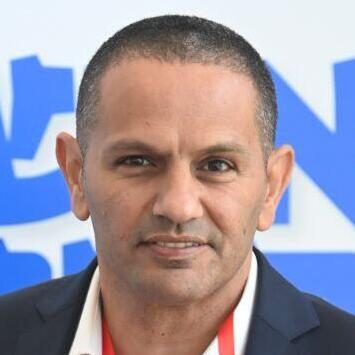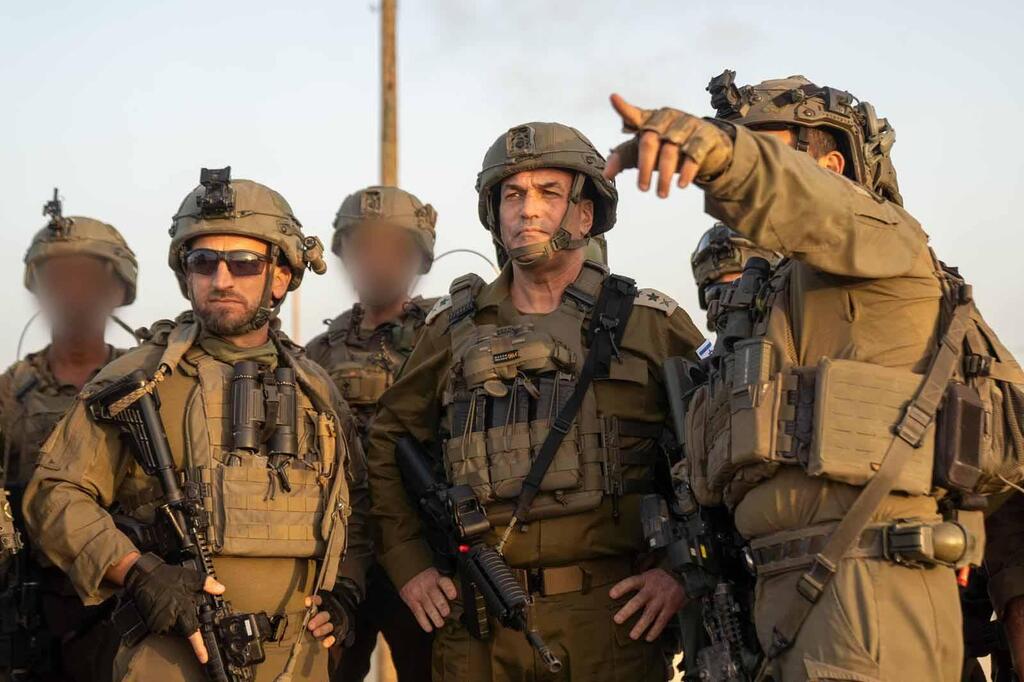The last thing Israel’s military leadership needed right now was fresh tension with its reservists, especially as confidence in the government wanes. On Saturday, U.S. and Iranian envoys will reconvene in Oman to resume talks on Tehran’s nuclear program. Along Israel’s northern border, Jerusalem and Ankara are quietly negotiating a way to avoid accidental clashes in Syria. In Gaza, the Rafah Brigade—one of Hamas’s most formidable units—still controls roughly three‑quarters of its tunnel network. And as the high‑holiday season begins, commanders remain on edge across the West Bank.
Yet all these life‑and‑death challenges have been eclipsed by an open letter signed by dozens of Israeli Air Force reservists. In it, they accuse the Gaza campaign of serving “mainly political and personal interests” rather than genuine security needs, and demand an immediate ceasefire to free the remaining hostages. In response, Chief of Staff Lt. Gen. Eyal Zamir and Air Force Commander Maj. Gen. Tomer Bar announced that any reservist who signs such a letter—and still holds an active reserve slot—will be removed from duty.
With the letter stopping short of a blanket refusal to serve, the military leadership is drawing a firm red line: criticism is tolerated, but undermining military cohesion is not. “How can commanders trust an active reservist who signs a statement like that? Will he carry out his mission?” a senior air force official asked. “It’s a very slippery, dangerous slope.”
All living former air force commanders, from Lt. Gen. (ret.) Dan Halutz on down, have rallied behind Bar—a rare show of unity in a branch that prides itself on close‑knit camaraderie.
Many Israelis on the political right have been quick to point out that most signatories come from the country’s wealthier urban centers. But critics say the real culprit is a decade‑and‑a‑half of Likud-led governments that failed to invest adequately in education and opportunity in Israel’s outlying regions, leaving too few young people from these areas qualified for technical corps or flight school.
Retired Lt. Col. Aviv Itani, a former air force officer who has spoken out against mixing politics and the military, telling Ynetnews: “My comrades in the reserves have lost their way. Who put them in a position to make these demands? Uniforms must not bring politics into the army.” He added, “We’re all equal under the flag—pilots, tank crews, CEOs, union leaders or waiters.”
Israel is waiting for news from Oman
Meanwhile, defense officials are keeping a close eye on Muscat, where U.S. envoy Steve Witkoff is to meet Iran’s Foreign Minister Abbas Araqchi. Whether Prime Minister Benjamin Netanyahu truly knew in advance of these talks—as he claims—or what he may have negotiated in a private call with President Donald Trump is now less important than preparing for every eventuality: a renewed diplomatic breakthrough, a collapse in talks, or even a sudden military strike, with or without American backing.
On the Syrian front, discussions with Turkey aim to establish a de‑confliction mechanism similar to the one Israel once operated with Russia under President Bashar al‑Assad.

Jerusalem has made clear that any Turkish military bases near the historic city of Palmyra would cross a red line and could spark hostilities. But many defense analysts warn that simply copying the Israel‑Russia model may not work, given Ankara’s different strategic aims and President Recep Tayyip Erdoğan’s increasingly hostile rhetoric toward Israel’s Jewish population. They say Israel may need to devise new, creative solutions.
Get the Ynetnews app on your smartphone: Google Play: https://bit.ly/4eJ37pE | Apple App Store: https://bit.ly/3ZL7iNv
With so many pressing challenges on every front, one can only hope the chief of staff will find the time—and the political support—to develop them, rather than getting bogged down in internal strife.



